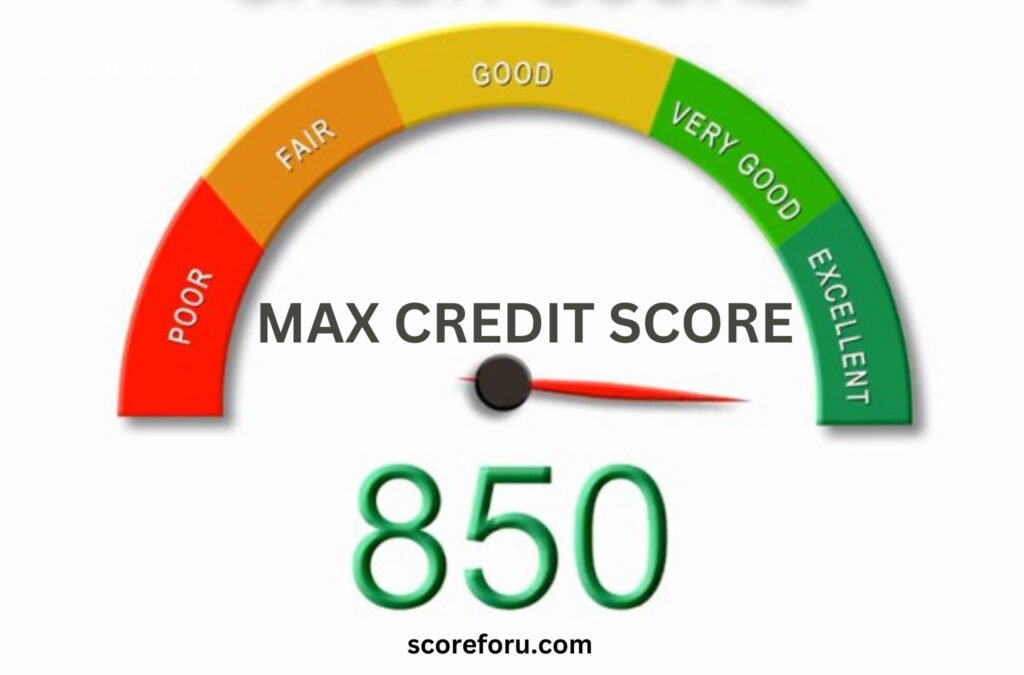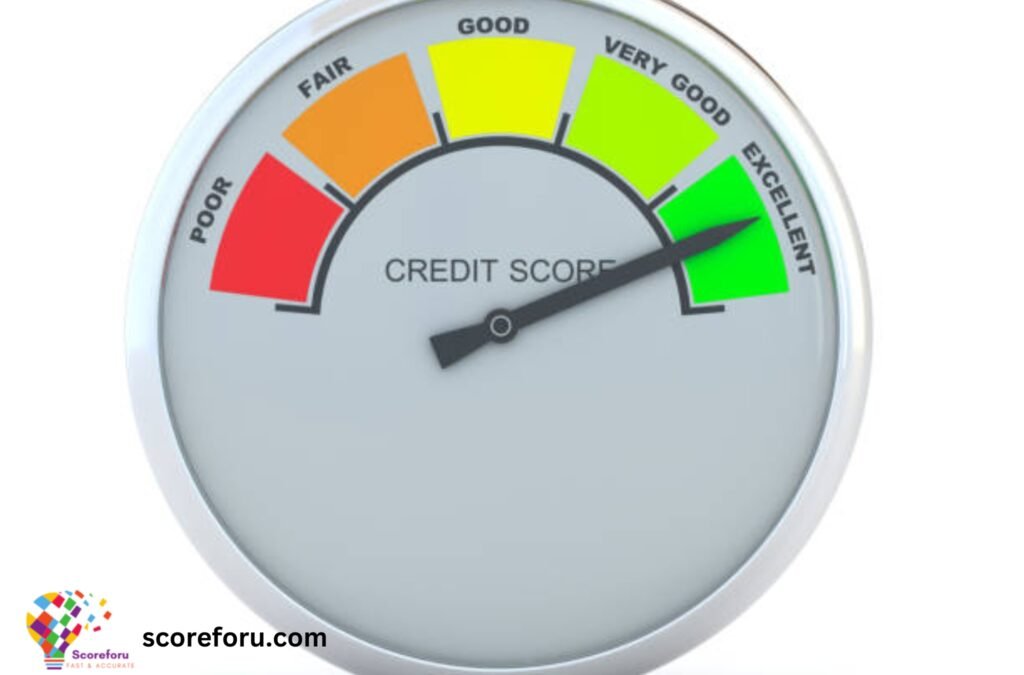How To Max Credit Score, spend regularly on a credit card and repay it in full on time, avoid maxing out your credit limits, make more than minimum payments, monitor for mistakes, ensure you’re on the electoral roll, and avoid using ATMs with your credit card. Paying every bill on time is also crucial for improving your credit score.
Opening accounts that report to the credit bureaus and maintaining low credit utilization can help as well. By reviewing your credit reports, you can identify any errors and fix them to improve your FICO scores. Additionally, there are various apps available, such as Credit Karma, TransUnion, WalletHub, Credit Sesame, myFICO, and Capital One CreditWise, that can help you check and monitor your credit score.

Understanding Credit Scores
When it comes to managing your finances, understanding credit scores is crucial. Your credit score is a three-digit number that represents your creditworthiness and financial responsibility. It plays a significant role in your ability to obtain loans, credit cards, mortgages, and even rental agreements.
What Are Credit Scores?
Credit scores are numerical ratings that reflect your credit history and borrowing behavior. They are typically generated by credit bureaus, such as Equifax, Experian, and TransUnion. These agencies collect information about your payment history, outstanding debts, length of credit history, and other factors to calculate your credit score.
There are different credit scoring models available, but one of the most commonly used is the FICO score. FICO scores range from 300 to 850, with higher scores indicating better creditworthiness.
Importance Of Credit Scores
Credit scores are essential for lenders and financial institutions to assess the risk of lending to you. A higher credit score signifies that you are more likely to repay your debts on time and manage your finances responsibly. This, in turn, increases your chances of being approved for loans and credit cards with favorable terms, such as lower interest rates and higher credit limits.
On the other hand, a lower credit score can hinder your ability to access credit or may result in higher interest rates and stricter terms. It can also impact other areas of your life, such as rental applications, insurance premiums, and even job prospects.
Factors That Affect Credit Scores
Several factors influence your credit scores. It’s important to understand these factors and how they can impact your creditworthiness:
- Payment history: Your payment history is one of the most critical factors in determining credit scores. Making timely payments on your loans and credit cards demonstrates your ability to manage debt responsibly.
- Credit utilization: Credit utilization refers to the percentage of your available credit that you are using. Keeping your credit utilization below 30% is generally recommended for a healthy credit score.
- Length of credit history: The length of your credit history is another factor that lenders consider. Having a longer credit history can showcase your track record of responsible borrowing.
- Credit mix: Having a diverse mix of credit accounts, such as loans and credit cards, can positively impact your credit scores. This demonstrates your ability to manage different types of credit responsibly.
- New credit applications: Applying for multiple new credit accounts within a short period can be seen as a credit risk. It’s important to be mindful of how frequently you apply for new credit.
By understanding these factors, you can take proactive steps to improve your credit scores. Regularly monitoring your credit report, making timely payments, and keeping your credit utilization low are effective strategies to maintain and boost your creditworthiness.

How To Improve Credit Scores
If you’re looking to improve your credit scores, there are several steps you can take to boost your chances of reaching that coveted maximum score. By implementing these strategies, you can increase your creditworthiness and open doors to better financial opportunities.
Pay Bills On Time
One of the most crucial factors in improving your credit scores is paying your bills on time. Late payments can have a significant negative impact on your credit history and lower your scores. To avoid this, make sure to set up reminders or automatic payments to ensure that you never miss a due date.
Reduce Credit Utilization
Credit utilization ratio is the percentage of your available credit that you’re using. To improve your credit scores, it’s essential to reduce your credit utilization. Aim to keep your utilization below 30% to demonstrate responsible credit management. If possible, pay off your balances in full each month, as it shows lenders that you can handle credit responsibly.
Avoid Maxing Out Credit Cards
Maxing out or using your credit cards to their limits can negatively impact your credit scores. It suggests a reliance on credit and a potential inability to handle financial obligations. To improve your scores, avoid maxing out your credit cards and strive to keep your balances well below their limits.
Monitor For Errors
Errors on your credit report can harm your credit scores. Regularly monitoring your credit report allows you to identify and dispute any inaccuracies. You can request a free copy of your credit report from each of the three major credit bureaus once a year. Thoroughly review your reports for any errors, such as accounts you don’t recognize, late payments that were actually made on time, or incorrect personal information.
How To Max Credit Score Join The Electoral Roll
Being on the electoral roll or voter registration list can positively impact your credit scores. Lenders view this as a sign of stability and residency. Make sure you’re registered to vote and update your information if you move house. Being on the electoral roll helps lenders verify your identity and adds credibility to your credit applications.
Strategies For Fast Credit Score Increase
Looking to maximize your credit score? Boost it quickly by spending regularly on a credit card and making sure to repay in full on time. Avoid maxing out your credit limit, make more than minimum payments, and monitor for any mistakes on your credit report.
Additionally, being on the electoral roll and avoiding using ATMs with your credit card can help improve your credit score fast.
How To Max Credit Score Open Credit Accounts That Report To Bureaus
One effective strategy for quickly increasing your credit score is to open credit accounts that report to credit bureaus. These accounts can include credit cards or loans. When choosing credit cards, make sure they are from reputable lenders and have favorable terms and conditions. Having a diverse credit mix, including both revolving (credit cards) and installment (loans) accounts, can also positively impact your credit score.
Maintain Low Credit Card Balances
To maximize your credit score, it’s important to maintain low credit card balances. You should aim to keep your credit utilization ratio below 30%. This ratio represents the percentage of your available credit that you are using. Keeping your balances low shows lenders that you are responsible with your credit and can help improve your credit score. Regularly paying off your credit card balances in full and on time is essential for maintaining low balances.
Build A Positive Credit History
Building a positive credit history is crucial for achieving a fast credit score increase. One way to do this is by establishing a long credit history. The longer you have accounts open and in good standing, the better it reflects on your creditworthiness. Make sure to pay all your bills on time, including rent, utilities, and loans. Additionally, avoid closing old accounts as this can decrease the average age of your credit history, which can negatively impact your credit score.
Address And Resolve Negative Marks
In order to boost your credit score quickly, it’s important to address and resolve any negative marks on your credit report. Negative marks can include late payments, collections, or bankruptcies. Review your credit report regularly to identify any errors or inaccuracies, and report them to the credit bureaus for correction. If you have legitimate negative marks, consider negotiating with creditors to settle the debts or set up payment plans to resolve them. Taking proactive steps to address negative marks can help improve your credit score faster.
By implementing these strategies, you can work towards a fast credit score increase. Remember to be patient, as improving your credit score takes time and consistent effort. Monitor your credit regularly and make adjustments as necessary to achieve your desired credit score.
Common Myths About Credit Scores
Understanding credit scores can be a daunting task, as there are numerous myths and misconceptions surrounding them. In this section, we will debunk some common myths and provide you with accurate information on how to maximize your credit score.
Paying Off High-interest Debt And Credit Score Improvement
One popular myth is that paying off high-interest debt will automatically lead to a significant improvement in your credit score. While it is true that reducing your debt can have a positive impact on your credit score, it is not a magical solution that will instantly skyrocket your score. Your credit score is determined by a combination of factors, including your payment history, credit utilization, and length of credit history.
To improve your credit score, it is important to focus on multiple aspects of your financial behavior. Paying off high-interest debt is a step in the right direction, but it is equally important to make all your payments on time and keep your credit utilization ratio low. By consistently practicing good credit habits, you can gradually improve your credit score over time.
Achieving A Perfect Credit Score
Another common myth is that it is possible to achieve a perfect credit score. While having an excellent credit score is certainly achievable, a perfect score of 850 is extremely rare. Credit scoring models take into account various factors like payment history, credit utilization, length of credit history, and types of credit, among others. Even individuals with impeccable credit history may not reach a perfect score.
Instead of aiming for a perfect score, focus on maintaining a good credit score within the range of 750-850. This range is considered excellent and will qualify you for the best interest rates and loan terms.
How To Max Credit Score Time Required To Increase Credit Score
One of the biggest misconceptions about credit scores is that they can be improved overnight. In reality, it takes time and consistency to improve your credit score. The length of time required to increase your credit score depends on various factors, such as the extent of negative information on your credit report and your ability to establish positive credit habits.
By practicing responsible credit behavior, such as making payments on time, keeping credit utilization low, and maintaining a good mix of credit accounts, you can gradually improve your credit score. It is important to note that the exact timeframe for credit score improvement varies from person to person.
In conclusion, don’t fall for common myths about credit scores. While paying off high-interest debt is beneficial and it is possible to achieve an excellent credit score, it is important to have realistic expectations and understand that credit score improvement takes time and consistent effort.
Benefits Of A High Credit Score
Having a high credit score comes with a plethora of benefits that can greatly improve your financial well-being. When it comes to accessing loans and other forms of credit, a high credit score can offer numerous advantages. In this section, we will explore three key benefits of having a high credit score: access to better loan terms, lower interest rates, and increased borrowing power.
Access To Better Loan Terms
When you have a high credit score, lenders consider you as a low-risk borrower. This means that you are more likely to qualify for loans with favorable terms, such as longer repayment periods and lower fees. Lenders are often eager to offer their best loan options to individuals with high credit scores, as they demonstrate a responsible borrowing history. By having access to better loan terms, you can save money in the long run and have more flexibility in managing your finances.
How To Max Credit Score Lower Interest Rates
One of the most significant benefits of a high credit score is the ability to secure loans at lower interest rates. Lenders reward borrowers with high credit scores by offering them lower interest rates, as they are considered less risky to lend money to. This can result in substantial savings over the life of a loan, whether it be for a mortgage, car loan, or personal loan. By paying lower interest rates, you can reduce the overall cost of borrowing and have more money to allocate towards other financial goals.
Increased Borrowing Power
A high credit score grants you increased borrowing power, as it demonstrates your creditworthiness to lenders. Lenders are more likely to approve larger loan amounts for individuals with high credit scores, as they have a proven track record of responsible borrowing and timely repayments. This increased borrowing power can be particularly beneficial when you need to make significant purchases or investments, such as buying a home or starting a business. With a high credit score, you have the ability to access the funds you need to fulfill your financial goals.

FAQ On How To Max Credit Score
How To Max Credit Score Is It Possible To Get A 850 Credit Score?
It is possible to achieve a credit score of 850, but it is extremely rare. To improve your credit score, spend regularly on a credit card and repay it in full on time, avoid maxing out your credit limits, make more than minimum payments, monitor for errors, and ensure you’re on the electoral roll.
How To Max Credit Score Can You Get A 900 Credit Score?
No, a 900 credit score is not possible. The highest credit score you can achieve is 850.
How Can I Increase My Credit Score To Max?
To increase your credit score to the maximum, follow these steps: 1. Use a credit card regularly but repay the full amount on time. 2. Avoid maxing out your credit cards and only use a small portion of your credit limit. 3. Make more than the minimum payments on your debts. 4. Monitor your credit report for mistakes and dispute any discrepancies. 5. Ensure you’re registered on the electoral roll. 6. Avoid using credit cards at ATMs. Remember, improving your credit score takes time, so be patient and consistent with your efforts.
How Hard Is It To Get A 800 Credit Score?
It can be challenging to achieve a perfect 800 credit score. However, by consistently paying bills on time, keeping credit card balances low, avoiding maxing out credit cards, and monitoring for errors, you can improve your credit score over time.
Conclusion
To maximize your credit score, follow these tips: spend regularly on a credit card but repay it on time, avoid maxing out your credit limit, make more than minimum payments, monitor your report for mistakes, be on the electoral roll, and avoid using ATMs with your credit card.
It’s also crucial to pay every bill on time and review your credit reports regularly. By following these steps, you can improve your credit score and maintain a consistent credit history.
